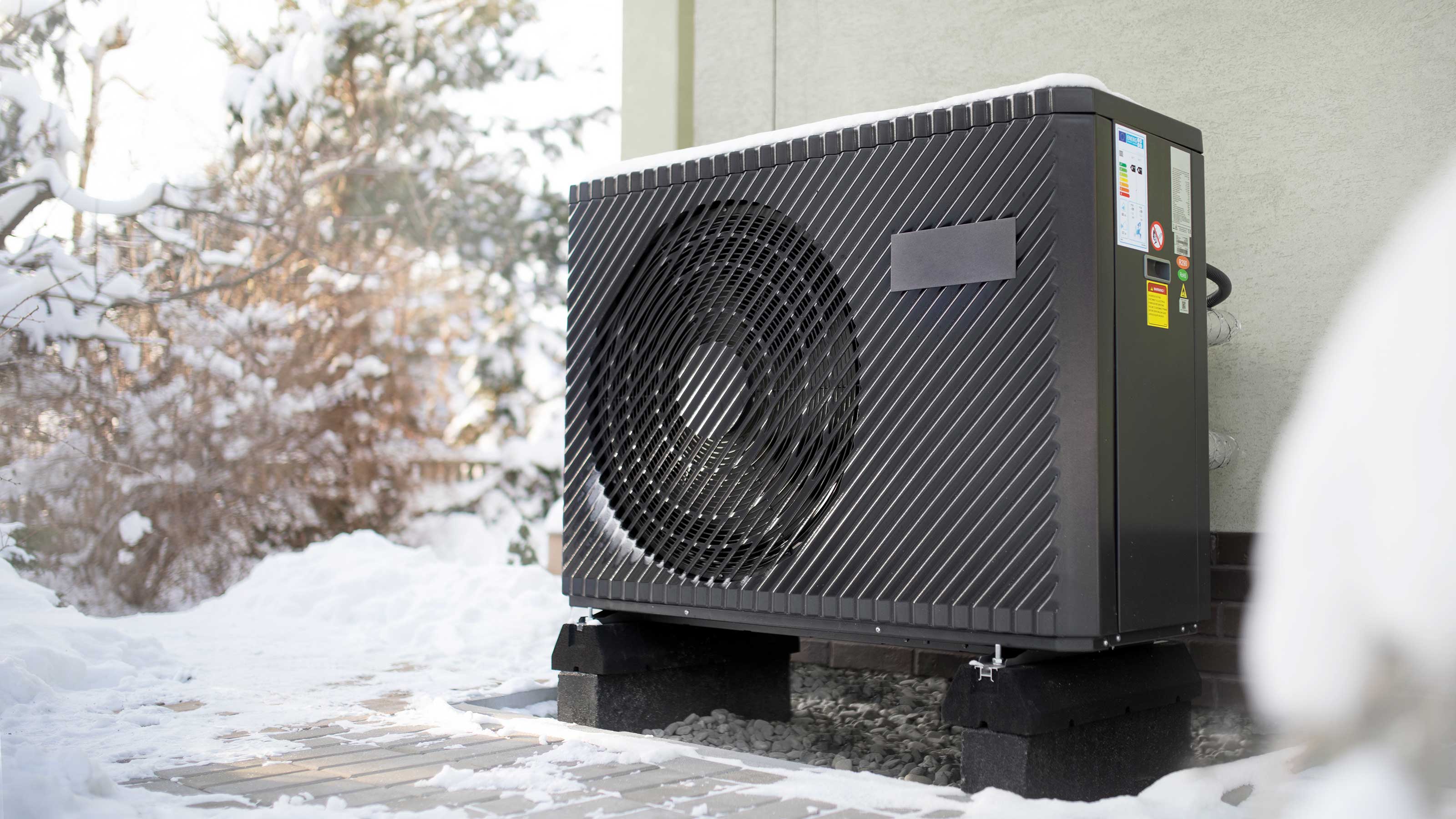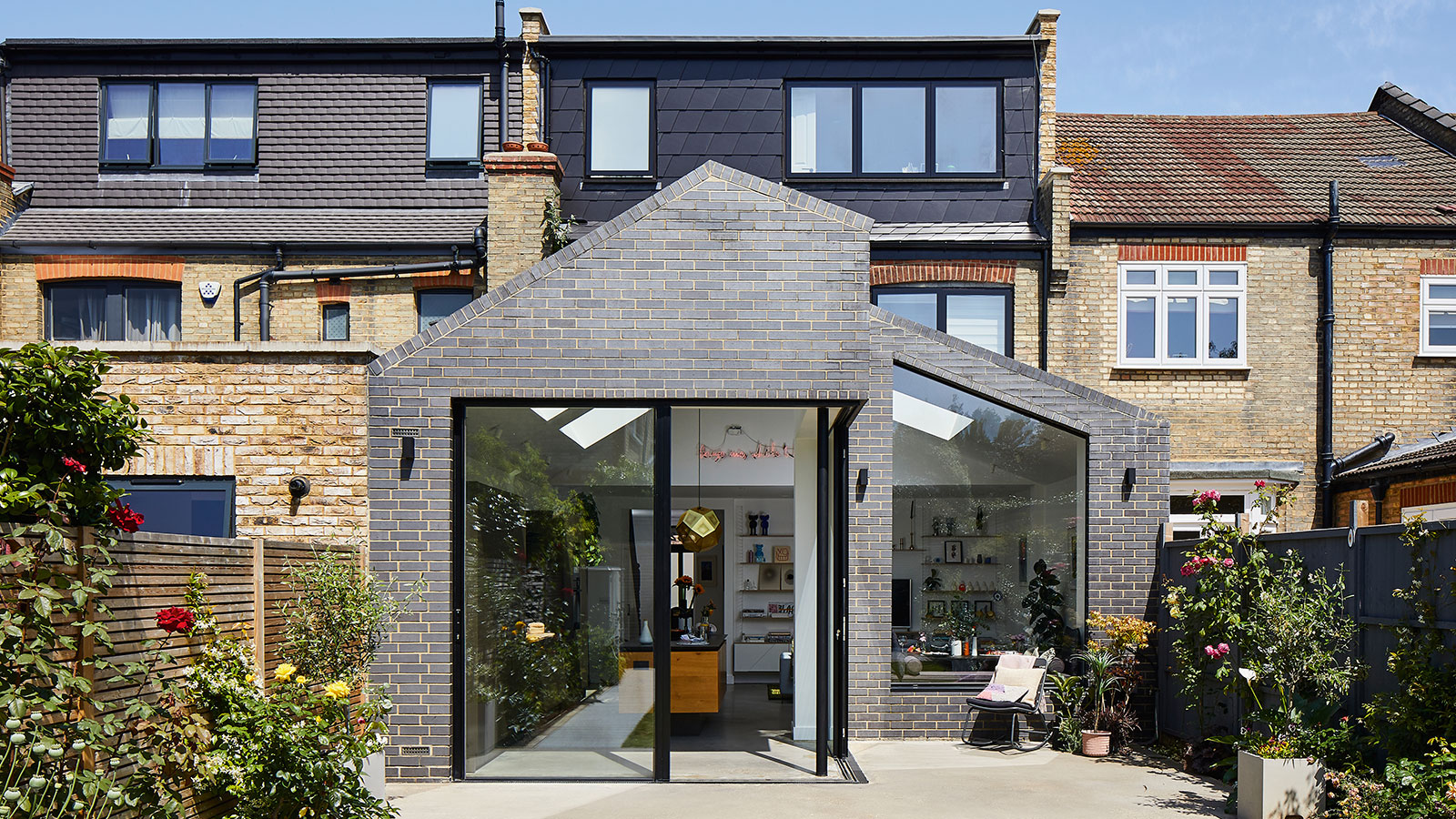Do heat pumps work in cold weather? Plus, their efficiency in winter explained
How do heat pumps perform when temperatures fall? Renewables expert David Hilton explains the impact of cold weather on heat pumps and why they are a good choice for the British climate

Bring your dream home to life with expert advice, how to guides and design inspiration. Sign up for our newsletter and get two free tickets to a Homebuilding & Renovating Show near you.
You are now subscribed
Your newsletter sign-up was successful
'Do heat pumps work in cold weather?' is a pertinent question to ask if you're considering investing in this low-carbon technology to heat your home. After all, we rely on our heating and hot water most in the colder, winter months and need to be confident that the heating source we choose will deliver when we need it most.
Heat pumps, particularly air source heat pumps, have been heralded as key to the future of low-carbon heating and reducing our reliance on fossil fuels. However, they typically cost significantly more than gas boilers at present. As such, it's wise to do your homework to ensure a heat pump is right for you and your home when investing.
The good news is heat pumps do work in colder weather. Our expert guide explores how the efficiency of heat pumps is impacted by the colder weather, and how to take steps to 'winterproof' your new heat pump installation.
Do heat pumps work in cold weather? And at what temperature do heat pumps stop working?
Before answering this question, it's important to give a brief overview of how heat pumps work.
A heat pump features a refrigerant circuit that compresses gas to create heat. The refrigerant is in liquid form until it absorbs heat (from the air or ground) and ‘boils’ to become a gas. This gas is then compressed to get hot and the heat is then transferred for use in the home.
The refrigerant liquid used in most heat pumps ‘boils’ at around -50°C. Therefore any air or ground temperature that is even as low as -20°C is 30°C warmer than the refrigerant.
As such, most air source heat pumps will only keep working to around -10°C but some will keep working as low as -20°C. It's rare, however, that temperatures drop to these extremes in the UK.
Bring your dream home to life with expert advice, how to guides and design inspiration. Sign up for our newsletter and get two free tickets to a Homebuilding & Renovating Show near you.
Ground source heat pumps are often set to not work below -8°C. This might not seem like a lot when compared with air source heat pumps but the ground is usually warmer than the air. You do not want to have to put too many chemicals into the pipes in the ground, and you also do not want the water to freeze as it takes a very long time to recover.
So heat pumps do work in cold weather but as with all other industries there are many different products out there, with many different refrigerants behaving in different ways. You really need to do your homework and make sure that the unit your choose will not only work all-year round but that it is optimised too for colder weather.
What's more, it's key to note that most of the UK, except perhaps areas of Scotland and the higher altitude areas, is actually wet rather than cold in winter. This makes it ideal for air source heat pumps.
Does a heat pump's efficiency drop in cold weather?
There are two main factors which impact the efficiency of a heat pump:
- The temperature of the source (air or ground)
- and the temperature you are trying to achieve in the home.
Air source heat pumps will lose power in cold weather because as the heat is extracted from the air, the condensation on the fins of the heat pump evaporator will freeze and gradually block the air passage. The heat pump therefore goes into a reverse cycle to deliver heat to the evaporator and melt the ice. This produces a lot of ‘steam’, but is quite normal.
Ground source heat pumps do not have a reverse cycle as the ground loop does not freeze up in the same way.
The other thing that happens with a heat pump is that in colder weather you will have warmer water in the radiators and underfloor heating system. And you will require more energy to produce this higher temperature. Higher temperatures in heat pumps inevitably equals lower efficiency and lower output.
How does a heat pump's efficiency compare to a gas boiler's in colder months?
It's an important question to ask when weighing up heat pumps vs gas boilers.
A gas boiler burns gas and as such produces a certain number of kWh (kiloWatts per hour) per volume of gas. The outside temperature does not affect the efficiency of the boiler but, as with any heating system, you will need more heat when it is colder outside.
Although a gas boiler is usually around 90% efficient and a heat pump could be around 300% efficient, these are not comparable figures as natural gas costs around 10p per kWh and electricity costs around 35p per kWh. (These figures could be set to rise in April too.) Therefore, if you do the maths, the running costs are potentially very similar.
Which is more efficient in cold weather: An air source or ground source heat pump?

Need more advice or inspiration for your project? Get two free tickets to the Homebuilding & Renovating Show.
The temperature of the source of the energy, namely the ground and air, will have a bearing when comparing the efficiency of air source heat pumps and ground source heat pumps in the colder months.
The ground temperature at a depth of around 1.5m is about 10°C. As the winter season progresses, the ground around the ground source heat pump collectors will often become cooler, unless the soil is very damp. This means that the source temperature is getting cooler until it can recharge from the summer sun.
As such, if the air is warmer than the ground, then an air source heat pump will be more efficient than a ground source heat pump. However, if the ground is warmer, then the ground source heat pump will be more efficient.
That said, if we take all the averages and variables into account, ground source heat pumps can be slightly more efficient than air source heat pumps, but this does really depend on the location in the country and the quality of the ground collector.
How do you 'winterproof' a heat pump?
To begin, air source heat pump positioning is key. Air source heat pumps need space around them so that the air can move through the heat pump and dissipate, rather than being sucked back into the heat pump. Snow can be a problem if it builds up too high against the heat pump, so the right position for the heat pump needs to be carefully planned.
Also, if an air source heat pump is positioned on the south side of the property you may need additional sensors on the north side. This is so that the heat pump does not get 'confused' when the sun comes out on a clear, but very cold, winter's day, thus making the heat pump think it is warm when the home is actually still in need of heat.
The real key to ensuring your heat pump works as efficiently as possible in the winter months is good planning and installation. Due to the nature of how heat pumps work, we need to design them so that we know how much heat there is in the source (air or ground), how much heat we need in the home and how big the ‘engine’ needs to be to transfer the heat across.
Careful calculations should be done to ensure a balanced installation is designed where the heat pump and the emitter circuits (underfloor heating and radiators) are all carefully specified to meet the heat loads.
With this in mind, when it comes to ground source or air source heat pump installation it is best to use an experienced installer who understands heating systems, understands heat pumps and is familiar with the workings of the heat pump brand that is being installed.
Heat pumps are not a one-size-fits-all solution and as such it is worth looking for the right installers.
David is a renewables and ventilation installer, with over 35 years experience, and is a long-standing contributor to Homebuilding and Renovating magazine. He is a member of the Gas Safe Register, has a Masters degree in Sustainable Architecture, and is an authority in sustainable building and energy efficiency, with extensive knowledge in building fabrics, heat recovery ventilation, renewables, and also conventional heating systems. He is also a speaker at the Homebuilding & Renovating Show.
Passionate about healthy, efficient homes, he is director of Heat and Energy Ltd. He works with architects, builders, self builders and renovators, and designs and project manages the installation of ventilation and heating systems to achieve the most energy efficient and cost effective outcome for every home.

